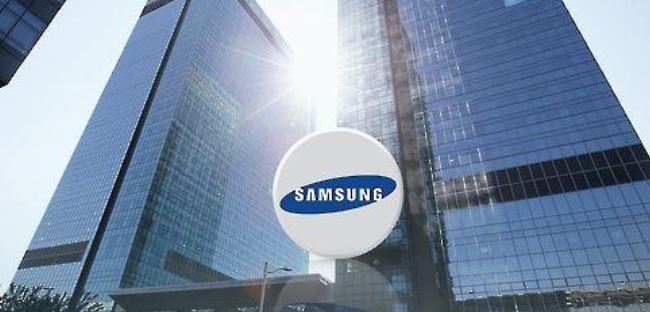Samsung affiliate required to sell additional stake in group's holding firm: FTC
By YonhapPublished : Dec. 21, 2017 - 13:14
A Samsung Group affiliate will be required to sell an additional stake in the de facto holding company of South Korea's No. 1 conglomerate as a merger that took place in 2015 has effectively strengthened cross-shareholding ties within the business group, the country's corporate watchdog said Thursday.
In 2015, Samsung C&T Corp. was created by merging with Cheil Industries Inc., becoming the group's de facto holding firm.
At that time, the Fair Trade Commission ordered Samsung SDI Co., another affiliate, to sell a 2.6-percent stake, or 5 million shares in the merged entity as it determined that the tie up bolstered the banned cross-shareholding arrangement among affiliates.
The corporate regulator said Samsung SDI has to unload an additional stake of 2.1 percent, or some 4 million Samsung C&T stocks, under the revised guidelines on the implementation of laws banning cross-shareholdings which was unveiled in 2015.
In 2015, Samsung C&T Corp. was created by merging with Cheil Industries Inc., becoming the group's de facto holding firm.
At that time, the Fair Trade Commission ordered Samsung SDI Co., another affiliate, to sell a 2.6-percent stake, or 5 million shares in the merged entity as it determined that the tie up bolstered the banned cross-shareholding arrangement among affiliates.
The corporate regulator said Samsung SDI has to unload an additional stake of 2.1 percent, or some 4 million Samsung C&T stocks, under the revised guidelines on the implementation of laws banning cross-shareholdings which was unveiled in 2015.

The FTC the guidelines were wrongly applied to the case in the past, and the revised one would prevent confusion and remove unnecessary uncertainties in the future.
The value of the stocks to be unloaded is estimated at some 500 billion won ($463 million).
The FTC said Samsung SDI will be given a six-month grace period after it is informed of the latest ruling.
Industry sources said Samsung Group may have to resolve the issue by the third quarter of next year given related procedures.
The FTC has been giving a grace period for companies that have merged to resolve the cross-shareholding situation coming from the merger, and in some cases gives outright waivers. Such rules have been applied to Samsung and other conglomerates.
"We promise to implement efforts to correct previous errors," FTC Chairman Kim Song-jo told reporters while issuing an apology. "Samsung can file a lawsuit for the breach of trust, and it is the group's right ... and a court would judge it."
Kim stressed that revised guidelines would not change depending on a court ruling on Samsung Group scion Lee Jae-yong. Lee, apparent heir to the group whose business portfolio ranges from electronics to finance, was sentenced in August to five years in jail for bribery, embezzlement and other charges in a massive corruption scandal that led to the ouster of former President Park Geun-hye.
Lee has appealed the court ruling.
In February last year, Lee Jae-yong, the heir apparent of Samsung Group, bought 200 billion won worth of 1.3 million Samsung C&T stocks from Samsung SDI, a move seen as part of his effort to increase control over the group.
A nonprofit foundation run by Samsung took over 2 million Samsung C&T stocks from Samsung SDI, with the remaining bought by institutional investors.
Market watchers said that the most feasible way to dispose of so many stocks is through a so-called block deal that can take time to arrange.
It can be sold to the No. 1 shareholder, which is Lee, or those that are close to Samsung that won't pose a threat to ownership and control.
The Samsung C&T-Cheil Industries merger drew strong backlash from overseas investors, in what many believe is a major step to pave the way for Jae-yong to stand at the top of the family-controlled conglomerate.
Samsung's series of restructuring efforts, including sell-offs of its non-core affiliates and mergers, came after Lee Kun-hee, who has led head the group since the late 1980s, was hospitalized in May 2014 after suffering a heart attack.
Under South Korea's fair trade law, affiliates of large business groups with assets of 10 trillion won or more are restricted from making equity investments or offering loan guarantees to one another.
These rules are in place to prevent large companies from expanding their areas of business indiscriminately and to make certain they do not expose themselves to risks by overreaching their capabilities.
Multiple Samsung officials declined to comment on the FTC's latest decision, apparently as they remained cautious over making comments on groupwide issues after Samsung shut down the Future Strategy Office, which served as the control tower for all Samsung affiliates. The move followed criticism over the group's alleged collusion with the ill-fated Park administration.
Industry watchers said the FTC's decision, however, may have an adverse impact on the market as it casts doubt over the predictability of the country's economic policies. (Yonhap)



![[AtoZ into Korean mind] Humor in Korea: Navigating the line between what's funny and not](http://res.heraldm.com/phpwas/restmb_idxmake.php?idx=644&simg=/content/image/2024/04/22/20240422050642_0.jpg&u=)
![[Exclusive] Korean military set to ban iPhones over 'security' concerns](http://res.heraldm.com/phpwas/restmb_idxmake.php?idx=644&simg=/content/image/2024/04/23/20240423050599_0.jpg&u=20240423183955)


![[Graphic News] 77% of young Koreans still financially dependent](http://res.heraldm.com/phpwas/restmb_idxmake.php?idx=644&simg=/content/image/2024/04/22/20240422050762_0.gif&u=)

![[Herald Interview] Why Toss invited hackers to penetrate its system](http://res.heraldm.com/phpwas/restmb_idxmake.php?idx=644&simg=/content/image/2024/04/22/20240422050569_0.jpg&u=20240422150649)






![[Exclusive] Korean military to ban iPhones over security issues](http://res.heraldm.com/phpwas/restmb_idxmake.php?idx=652&simg=/content/image/2024/04/23/20240423050599_0.jpg&u=20240423183955)



![[Today’s K-pop] Ateez confirms US tour details](http://res.heraldm.com/phpwas/restmb_idxmake.php?idx=642&simg=/content/image/2024/04/23/20240423050700_0.jpg&u=)